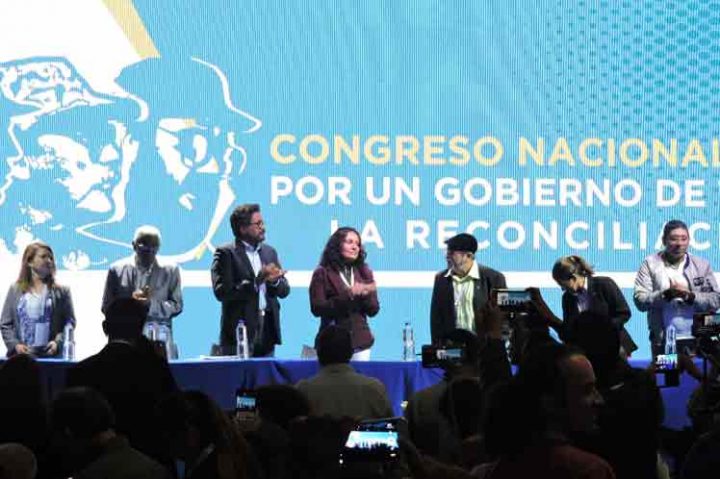By
This Sunday, more than a thousand delegates of the Farc will gather in Bogotá to discuss its future, including the new political party’s name and what it will stand for.
“Excited to return to my land, all of us together will build the bases of a #NuevoPartido (New Party) that gives voice to those who have been forgotten,” ‘Timochenko’ wrote in his Twitter account August 21. Attached to his Tweet was a photo of him about to board on a place to fly to Colombia.
Despite his illness in Havana, Cuba, since early-July, the FARC commander has gathered enough strength to take place in the most important event in the guerrilla group’s six decades: the congress where they will lay the foundations of the political party that will enter the electoral cycle starting next year. According to him, it was the Cuban doctors who “with their efforts guaranteed that I’d be able to be in the founding congress of the new party”.
The next day, the leader of the FARC met for several hours with the Central High Command of the guerrilla. At the meeting they discussed, above all, the name of the political party. On August 15, ‘Iván Márquez’ had told the media that the name of that community “will surely be called Fuerza Alternativa Revolucionara de Colombia (Alternative Revolutionary Front of Colombia). We do not want to break ties with our past, we have been and will continue to be a revolutionary front.”
“Excited to return to my land, all of us together will build the bases of a #NuevoPartido (New Party) that gives voice to those who have been forgotten”.
In fact, some members of the FARC had started to write the statutes in an 11-page document, which, according to the guerrilla, “includes the principles and elaborations of Marxism, Leninism, Bolivarian emancipatory thinking, critical and libertarian thinking …) and, in particular, those formulated by the FARC since its founding “.
However, before coming to Colombia ‘Timochenko’ summoned people through his Twitter account to participate. “I invite all Colombians to give suggestions on what the name should be,” he trilled. This message gave way for a controversy about a possible internal dispute between the FARC commanders regarding the nominal and ideological future of the organization.
Some say that, in honor of the founding story and the 64 years of struggle, the Farc brand must continue. Others, however, argue that the movement must constitute a sort of broad front for reconciliation, which includes other voices and other sectors.
In fact, in a recent Twitter poll conducted by ‘Timochenko’, 36% of the more than 10,000 people who voted said the party should be called ‘New Colombia’. About 25% of the voters indicated that the name should remain Farc – Ep; 23% of respondents said it should be called People’s Hope and the remaining 16% voted for New Party as the name.
The FARC hopes that its social bases and other sympathizers will reach the center of Bogotá to support the beginning of its path to political life, without the fear previously infused by its illegality.
This Sunday, August 27, following the dust spread by prosecutor Nestor Humberto Martinez’s letter criticizing the list of assets of the guerrilla, more than a thousand delegates of the Farc will gather in Bogotá to discuss this and other topics. Delegates, who were elected “democratically in guerrilla assemblies”, according to the call to Congress, will join the 61 members of the Central High Command and other “national and international guests,” according to the document.
Among them is ‘El Paisa’, one of the guerrillas that has most attacked the state’s infrastructure and committed more crimes. When he came from Guaviare to Bogota, he met with the police commander of the department and images of the meeting caused some controversy in the country.
It is also known that on Sunday there will be an inaugural ceremony, which will involve all members of the Secretariat and that the name of the event is “For a Transitional Government for Reconciliation and Peace.” In addition, there will be a concert in the Plaza de Bolivar to close the activity.
The FARC hopes that its social bases and other sympathizers will reach the center of Bogotá to support the beginning of its path to political life, without the fear previously infused by its illegality. From now on, when votes begin to substitute the bullets, they will compete with each other to try to convince Colombians that, despite their negative image, the ex-guerrillas can be an option of power.










